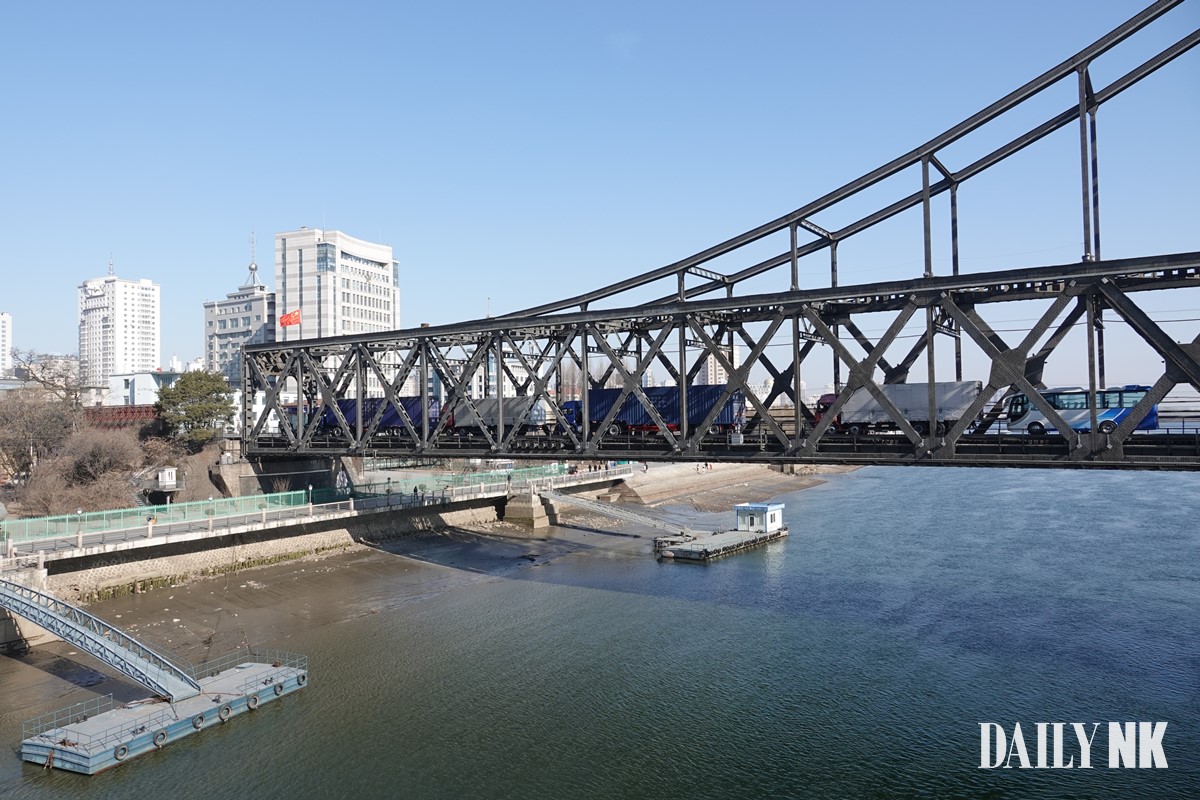Last month, North Korean authorities engaged in so-called “state-led smuggling” — unofficial trade led by the Ministry of State Security (MSS) — in the China-North Korea border region of Yanggang Province, Daily NK has learned.
The smuggling activities occurred around the time that freight train service restarted between Sinuiju and Dandong in mid-January, and may have been in response to the leadership’s need for “emergency supplies.”
Specifically, a source in Yanggang Province told Daily NK on Monday that the MSS oversaw some “state smuggling” through the Ssangdubong Customs House in Samjiyon in mid-January. He said the operation aimed to provide holiday supplies to Samjiyon residents to mark the 80th Day of the Shining Star, the Feb. 16 birthday of late North Korean leader Kim Jong Il.
According to the source, some 30 Chinese-made Dongfeng trucks entered North Korea during the transaction, laden with food, flour, cooking oil, and other daily necessities.
Though civilians drove the trucks, each truck carried a MSS agent to oversee the safety of the drivers and supplies. Agents from the provincial and Samjiyon branches of the MSS carried out special guard duty every 20 meters along the transaction route, too.
In North Korea, “state smuggling” is unofficial trade that may outwardly appear to be illegal business between ordinary trading companies or individuals and Chinese merchants; however, it takes place with the approval and supervision of the authorities — minus the official trade procedures.
Ssangdubong Customs House, for its part, does not engage in “normal” trade activities. That it was used as the pathway for this latest importation of emergency supplies is noteworthy, however, because it suggests that the facility could be used later to bring in items on international sanction lists.
In fact, the customs house had been completely closed to both individual-based smuggling and unofficially sanctioned “state smuggling” since January 2020. The latest transaction is reportedly the first that has gone through the facility since the closure of the border.

The source said that local authorities tried to engage in “state smuggling” several times last year, but were unable to receive final approval from the leadership. They apparently received approval this time around, timing it with the restart of freight train service between Sinuiju and Dandong last month.
In fact, high-ranking MSS cadres — including Minister Jong Kyong Thaek — toured several regions of Yanggang Province’s frontier with China during visits in late July and mid-October.
Included among the places he visited was the Ssangdubong Customs House in Samjiyon and the Samjang Customs House in Taehongdan County.
The visits were aimed at ascertaining the ability of regions along the China-North Korea border, including Yanggang Province, to import supplies given limits on imports through the sole use of the quarantine facility at Uiju Airfield, North Pyongan Province.
That the latest transaction took place around the same time that a North Korean freight train from Sinuiju passed through Dandong is particularly noteworthy.
The source said there is a limit to how much can be imported through “official trade” due to the country’s emergency quarantine measures. He said the authorities apparently smuggled in supplies through unofficial routes to avoid international attention while simultaneously bringing in supplies from China by train last month.
He added that while the border has been closed the past two years, the authorities have focused exclusively on strengthening the “ideological foundations” of locals while banning them from trade activities.
The source warned that if long-cowered locals get word of the latest trade activity, they will “express considerable frustration.”


















